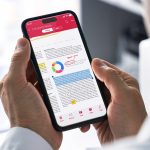Yuan Yue
- It’s estimated that by 2040, 1.3 billion tons of plastic will flood the Earth’s oceans and land.
- Among the main culprits in plastic garbage are single-use plastics like bottles and wrappers.
- Here are seven biodegradable, compostable, and edible packaging solutions companies have designed.
- See more stories on Insider’s business page.
Single-use food and drink packaging make up the bulk of garbage floating in our oceans.
In Europe alone, between 307 and 925 million litter items are released annually from Europe into the ocean, according to research published in the Nature Sustainability.
Of these, plastic accounts for up to 82% of trash – this consists mainly of bottles, bags, and food containers.
In recent decades, the relentless rise in single-use plastics has exceeded the processing capacity of waste management systems, becoming a threat to the environment.
300 million tons of this material are generated each year, according to Plastic Oceans, and up to 1.3 billion tons of plastic could flood the oceans and land in the space of just two decades.
To avoid plastic waste, many companies have accepted that the solution is a real commitment to alternative and sustainable materials.
Here are some of the companies working on revolutionizing the world of packaging to make it greener.
Compostable coffee pods
A coffee pod takes 500 years to decompose.
It’s estimated that around 20,000 million are thrown away each year across the globe, according to The Guardian – that’s enough pods to circle our planet 14 times.
Cafés Novell have designed compostable coffee capsules that are compatible with Nespresso coffee machines.
Rawf8/Getty Images
The design means the plastic container in which the capsules sit can be eliminated from the design.
Though the cardboard used in the packaging is 100% recyclable, the design also reduces the amount of cardboard used for packaging by up to 45%,.
This means the podscan be deposited into organic waste, breaking down in between 12 to 20 weeks.
“We are pioneers. We know that there are a couple more projects in Europe, one by a Swiss company and the other in the United Kingdom. But we are the first in this type of compatible Nespresso capsules,” CFO of Cafés Novell Josep Novell told El Periodico.
The company has invested more than $1.8 million (€1.5 million) and four years of research in the project.
Edible algae packaging
Based in London, startup Notpla aims to make packaging disappear entirely.
Notpla has created Ooho, an alternative to plastic produced using algae.
Not only is it that is not only biodegradable; it’s also edible. If thrown away, it only takes a few weeks to break down.
Designed to contain liquid, the unusual material has already been used at Roland Garros and the London Marathon.
Notpla is also working on algae packaging to replace cardboard boxes, which they’re already testing in London with Just Eat as a partner, according to the company’s CEO.
In April 2017, Notpla raised just under $1.17 million (£850,000) in just three days on crowdfunding platform Crowdcube.
In August 2018, they managed to get investment from venture capital fund Sky Ocean Ventures. A year later they carried out a seed round led by Impact VC Astanor Ventures and Lupa Systems.
Founded in 2014, the company has, so far, received a total investment of $7 million (€6 million) according to Crunchbase.
‘Reolivar’ or olive stone
This startup has created a new line of circular materials based on olive stones.
Vitalina Rybakova/ Getty Images
Naifactory Lab has developed what they call reolivar, a compostable material made in Spain that’s easily molded at low temperatures.
The company told Insider that the material is a “kind of bioplastic” they use to shape a wide variety of objects.
Industrial materials made of plant waste
Based in Zaragoza in Spain, Feltwood develops tech to make ecological industrial materials from agricultural plant waste products.
As well as being biodegradable, compostable, and having a low carbon footprint, the products are an alternative to plastic, wood, and other polluting and toxic industrial materials.
BanksPhotos/Getty Images
Feltwood has managed to raise $1.6 million (€1.4 million) to date.
This year it was included in the top 10 startups spearheading innovation in environmental protection, according to Europe Press.
Seaweed plastic
Catalan ecodesign startup Oimo has developed a range of biomaterials that are compatible with classic plastic machinery.
Using seaweed extracts, natural sugars, or non-toxic vegetable oils, and marine substances, the company has managed to make a sustainable material similar to plastic.
“We have developed a type of sustainable packaging that weighs little and is easy to work with to achieve the necessary flexibility or rigidity according to the needs of the different possible applications,” the startup’s CEO Albert Marfà told Residuos Profesionales.
Shutterstock
Oimo is one of the beneficiary companies of ACCIÓ’s Startup Capital aid, granted by the Department of Business and Knowledge of the Generalitat of Catalonia.
It has received a total of $88,000 (€75,000) from the program.
The startup was made set up 2020 with the first prize of the VIII Edition of the Entrepreneurship Award of the Caja de Ingenieros Foundation, with an endowment of ¢17,600 (€15,000).
Degradable bread and pastry packaging
Valencian company Vicky Foods is fully committed to a change towards compostable packaging for its brand, Dulcesol.
chaechaebyv/Shuttershock
Starting this summer, the company will be marketing its products in packaging that uses a new technology – the technology allows the material to degrade as if it were organic waste.
It is estimated that this will be trialled on 150 million packages of all its bread and pastry products, which would translate to an annual reduction of 1,200 tons of plastic by the brand.
VEnvirotech
This biotech startup uses bacteria to transform organic waste into the bioplastic Polyhydroxyalcanoate (PHA).
This is similar to polyethylene and polypropylene but is biodegradable, non-toxic, and safe for the human body.
Founded in 2017, based in the province of Barcelona, VEnvirotech closed one of the biggest rounds of the year in the biotech sector in 2021 by attracting financing of $12.9 million (€11 million).
The funds will allow the company to scale up the pilot projects it has in companies such as Nestlé, Calidad Pascual, and BonÀrea, according to La Vanguardia.
In total, it has already raised $17.6 million (€15 million).
Powered by WPeMatico






